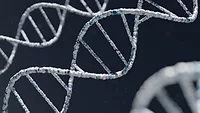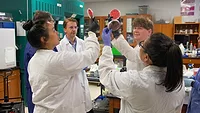Food Safety Training on Tap for 2014 at Rhode Island College
Editor's Note: The following is an edited version of an article that appeared Nov. 11 on ProvidenceJournal.com.
The head of food safety at a Rhode Island sausage company at the center of a nationwide salmonella outbreak in 2009 has helped design a new food industry training program at Rhode Island College.
Michael D. DeCesare, director of food safety at Daniele Inc., said the new program will help meet a growing demand for employees trained in food safety.
The program, to begin in fall 2014, will combine food chemistry and microbiology with practical training in areas such as designing an emergency response plan and managing a food safety crisis.
Students will be encouraged to participate in internships at Daniele and other local companies. The curriculum is being offered as part of the bachelor of science in health sciences degree. Students who complete the program will be prepared to get the certification required by the U.S. Food and Drug Administration to work in food safety management.
DeCesare, a RIC graduate, will teach in the program as adjunct professor.
“It’s going to be educational and practical,’’ he said. “They’re going to have the best of both worlds.”
Looking for quick answers on food safety topics?
Try Ask FSM, our new smart AI search tool.
Ask FSM →
Students will learn from case studies such as the salmonella contamination in 2009 at Daniele Inc.’s meat processing plant in Burrillville. The Daniele contamination sickened thousands of people in 44 states.
At the time, the company had been making dry-cured sausages for 34 years and had what food protection officials described as a pristine record.
Food inspectors ultimately determined that the culprit was not the sausage, as initially suspected, but rather the pepper in which it was rolled. After the outbreak, the company changed pepper suppliers and now buys only from those that irradiate their pepper to kill foodborne pathogens such as salmonella.
The pepper contamination raised new awareness nationwide about the hazards of imported spices. The New York Times recently reported that nearly 7 percent of imported spices examined by federal inspectors were contaminated with salmonella.
DeCesare described the Daniele outbreak as “the worst, yet best, experience of my life.” During the outbreak, he said, he worked 69 straight days for an average of 15 hours a day.
“I wouldn’t wish it on anybody,” he said, “but it was a great learning experience. …It made me a better food-safety person.”
DeCesare said he came up with the idea for the program last February while he was at an industry conference in Las Vegas.
“Everyone seemed to have the same problem,” he said. “You cannot find good workers to take on either a scientific role in the company … or a supervisory capacity because they don’t have any food knowledge.”
Though Rhode Island is known for its fine restaurants and the culinary program at Johnson & Wales University, knowledge of food manufacturing, he said, is “severely lacking.”
DeCesare said he proposed the idea last March to Eric Hall, associate professor of biology at RIC, who worked to win support for the program.
“The job market for food safety professionals is untapped,” Hall said in a statement released by RIC.
The statement cites data from the U.S. Bureau of Labor Statistics that projects jobs for food scientists nationwide will increase 10 percent between 2010 and 2020.
New graduates with degrees in food safety and science receive salaries of about $44,000 a year, the statement says, citing a report by the Institute for Food Technologists, a nonprofit professional organization.








